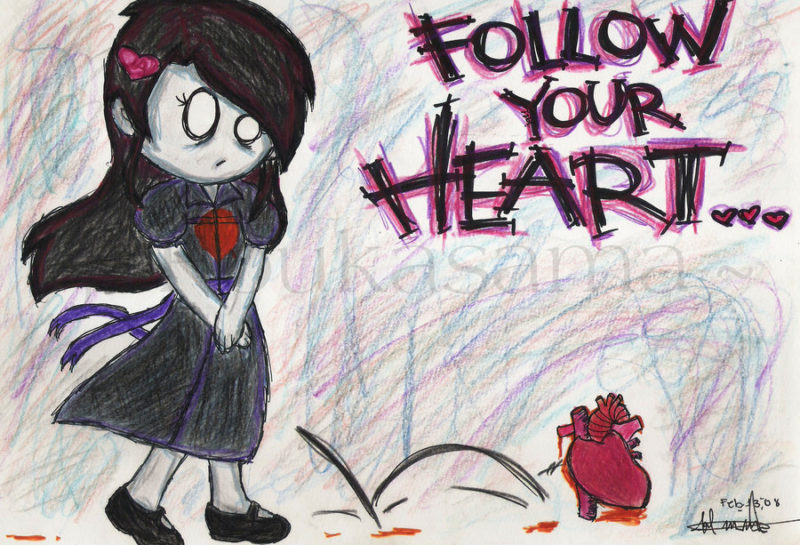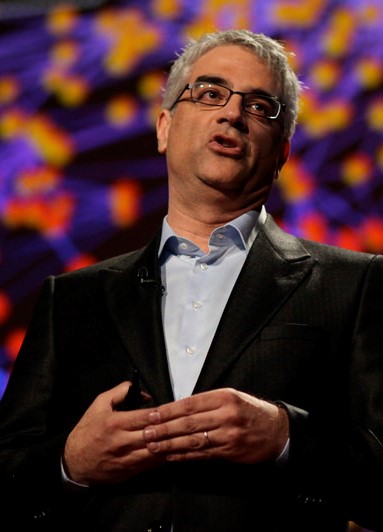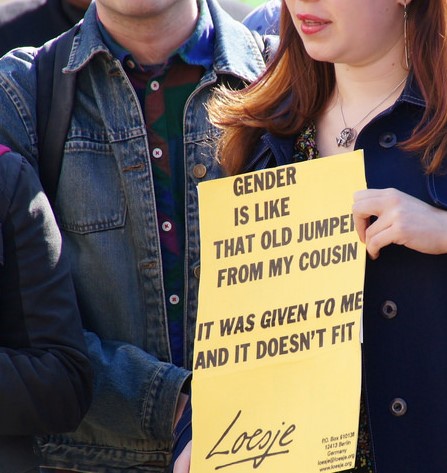The Tyranny of Feelings: Yale as a Microcosm for a Troubling Trend
In the recent past, important social matters were settled though free and open discussion and debate using logic and reason. Our American civil order is predicated on this. It works well when those engaged share a conviction that truth exists—that there is a real, objective reality beyond personal, subjective beliefs, and that things tend to go well when the rules, policies, and laws that govern our common life accord with reality.
The new religion that I introduced in the first post in this series undermines all of this. Today, feelings have largely replaced logic and reason. Postmodern relativism denies the existence of a real world “out there” that we must conform to. There is no God, no transcendent morality, no good or evil. Rather, reality is socially constructed. Without objective, transcendent truth, reason, and logic are undermined, and we are left with feelings and emotions in the driver’s seat.

The trend of prioritizing feelings over reason isn’t a new one. It’s been gaining ground for many years. More than one Disney film has trained children to “follow your heart.” Authenticity, or “being true to yourself,” means acting in accordance with strong emotions. The use of the phrase “I feel like” has become pervasive. While emotions are good, they are also very powerful, and can be very dangerous when decoupled from reason. This new religion—a toxic mix of postmodern relativism, Marxist social analysis and a Nietzschean will to power—has taken this trend to a whole new level. Today, emotions have become “weaponized.” They are used as blunt instruments to exert power and gain control.
Weaponized emotions at Yale
Here’s how this works in practice: In September 2015, an administrative committee at Yale University sent out an email urging students not to wear “appropriative” Halloween costumes that might be offensive. Yale professor Erika Christakis pushed back. She was worried about creeping censorship and wrote, “The ability to tolerate offense is a central feature of a free and open society.” Her email triggered a massive student protest. One student described how Christakis’ email had caused her injury, saying “It’s so important to give students of color a chance to heal from all the pain we’ve been experiencing this past week.” An open letter signed by more than 700 students condemns Erika’s email as “racist.” Student activists flocked to Silliman, the residential community home to Erika and her husband, respected Yale professor Nicholas Christakis. There they chalked taunting messages on the sidewalk. One message read: “I don’t feel safe here—and that’s on you!”
Nicholas Christakis came out to talk to these students. What transpired has become perhaps the most famous video clip of this new campus rage. The original clip has been taken down but here’s another version of the incident. (Click here if the video is not visible.)
https://www.youtube.com/watch?v=V6ZVEVufWFI?rel=0
Watching this, I’m struck by several things.
- First, I’m struck by how the venting of strong emotions (anger, sobbing, weeping, yelling, and disgust) dominate the interaction—an emotional outburst wildly out of proportion to what triggered it—a simple email about Halloween costumes.
- Second, I’m struck by the extreme disrespect, incivility, and outright contempt the students show to Christakis. We are seeing here the crisis of authority we face in our late modern age. This is the fruit of many years of encouraging people to “question authority.” Professors used to be accorded a level of respect from students, but no longer. For the students in this clip, it goes beyond disrespect to outright threats and intimidation.
- Third, I’m struck by this display of what has become an increasing and very troubling trend—to wield power though mob tactics. Rod Dreher wrote on this recently: “American politics has entered a stage where the passions of the mob increasingly rule … because emotional extremism is rewarded.” This is playing with fire, and Christians must have nothing to do with it.
- Finally, I’m struck by the demeanor and language of Nicholas Christakis. He is clearly operating from an older paradigm—one that values civility, respect and open discussion. He wants to reason with the students. He impressively keeps his own emotions in check.
His civility and desire for discourse ultimately fails. The students will have none of it. They are not interested in a discussion or debate. They want to punish him—to assign him guilt and publicly shame him.
Student 1: “What you did was create a space for violence to happen.” (Note how the word “violence” has been redefined. One of the hallmarks of the new religion is the redefinition of words and language, which I will focus on in the next entry of this series.)
Christakis: “That I disagree with. That I disagree with.”
Student 1: “It doesn’t matter whether you agree with me or not!”
Student 2: “It’s not a debate! It’s not a debate!”
Student 3: “You are not listening! You are disgusting!
This is the tyranny of feelings—the students are venting raw, unbridled emotion in an effort to coerce Christakis to admit wrongdoing. One Yale student, sobbing hysterically and shaking in rage demands: “So then apologize! I don’t understand, like, what’s the issue?”
Who Decides What Speech is Offensive?
Political correctness (PC) is how most of us encounter the tyranny of feelings. PC is shorthand for speech codes (written or unwritten) that purport to protect the feelings of certain minority groups and avoid giving offense. They become blunt instruments of power by defining what is and is not acceptable speech, and by inflicting penalties on violators, including public defamation, shaming, fines, and even the loss of employment. Perhaps the most illuminating moment of the interaction between Christakis and the students comes with this important question:
Christakis: “Who gets to decide what [speech, language] is offensive? Who decides?”
Student: “When it hurts me.”
There you have it. My emotions (my claims of hurt, pain and suffering) trump your opinions. Adherents of this new religion claim emotional damage to exert power and control. If you refuse to admit your guilt, there will be hell to pay. One student screams: “Now I want your job to be taken from you. I don’t want you to have this job!”
 And so it was. Nicholas and Erika Christakis lost their employment at Yale University following this incident. As one of their fellow professors said afterwards, “the administration threw them under the bus.” The students’ mob tactics were rewarded—they got what they demanded. Now we can expect much more of it, not only at Yale and university campuses across the nation, but in the broader culture as well. And this trend will move globally through universities and social media.
And so it was. Nicholas and Erika Christakis lost their employment at Yale University following this incident. As one of their fellow professors said afterwards, “the administration threw them under the bus.” The students’ mob tactics were rewarded—they got what they demanded. Now we can expect much more of it, not only at Yale and university campuses across the nation, but in the broader culture as well. And this trend will move globally through universities and social media.
For selected groups (defined by the Marxist social analysis that underpins the new religion) claims of offense, “hurt feelings” or discrimination accrue power to silence opponents and force them to conform to the accuser’s will. This conferring of power perversely incentivizes victimhood. In this new religion, victimhood bestows an almost god-like status. It encourages people to cast themselves as fragile, aggrieved victims in need of “safe spaces.” Professor Jonathan Haidt observed that it incentivizes people to “respond to even the slightest unintentional offense, even going so far as to falsify offenses.”
Thus we have an explosion of so-called “microagressions.” The whole system is built upon the need to keep finding newer reasons to be offended, newer claims to victimhood. As professor Haidt says, “The goalposts shift, allowing participants to maintain a constant level of anger and constant level of perceived victimization … Some colleges have lowered the bar so far than an innocent question, motivated by curiosity, such as ‘where are you from’ is now branded as an act of aggression.” Everyone walks around on egg shells, never knowing for certain if something they say might trigger an emotionally charged reaction, and a charge of racism, bigotry or discrimination.
Reflecting on this in a recent New York Times op-ed, Molly Worthen writes, “Calls for trigger warnings and safe spaces … have eroded students’ inclination to assert or argue. It is safer to merely ‘feel’ … Asserting that others must respond to your hurt feelings and sense of being offended is a way of deflecting [and] avoiding engagement with another person. You cannot disagree.”
If you cannot disagree, dialogue is undermined. The attempt to understand all sides of an issue, to truly and respectfully listen to arguments and alternative points of view in a search for truth is undermined. This is the tyranny of feelings and it is incredibly destructive. If it continues to carry the day in our culture, the load-bearing pillars of our free society will inevitably collapse under its weight.
 As destructive as this is, it has gotten even worse over the last two years. Not only do feelings trump opinions, they now trump reality itself. We see this most clearly with the sexual orientation and gender issue. If I’m born biologically female, but “I feel like” I’m male (or really anywhere on the so-called gender spectrum), then I am a male. My feelings determine the reality. Postmodernism has empowered me to create my own reality—my own personal identity—without any reference to biological facts.
As destructive as this is, it has gotten even worse over the last two years. Not only do feelings trump opinions, they now trump reality itself. We see this most clearly with the sexual orientation and gender issue. If I’m born biologically female, but “I feel like” I’m male (or really anywhere on the so-called gender spectrum), then I am a male. My feelings determine the reality. Postmodernism has empowered me to create my own reality—my own personal identity—without any reference to biological facts.
The Nietzschean will to power then kicks in, as I demand that others (and the society as a whole) affirm me in my personally created reality. If you fail to affirm me, I can wield power by claiming offense, pain, suffering, and discrimination. I can bash you as a hater and a bigot if you fail to let me use the bathroom or locker room of my choice based on my feelings about who I am at any given moment. States have passed laws and ordinances to enforce the tyranny of feelings. In New York City, authorities now fine citizens up to $250,000 for the novel crime of “mis-gendering” – referring to people by any words other than their pronouns of choice (including newly constructed words such as zie/hir, ey/em/eir and co).
Make no mistake: this new ideology is deadly serious. It is nothing less than a kind of acid, eating away at the central pillars of a free, open society. Yale University is supposed to represent dialogue and learning. What happens when we lose the freedom to openly dialogue, debate and discuss different viewpoints because we fear offending someone who may wield power over us by claiming our speech was “violence” leading to public shaming, fines or loss of employment? Ideas have consequences. What kind of culture will this new ideology produce? What will be the fruit?
- Scott Allen







2 Comments
Ana Roncal
April 21, 2017 - 12:22 amHi Scott, This is not happening just with American Culture. I could replace names and locations and it is exactly the same, whether in Spain or in Perú. The progressive post-marx agenda is global enough now not to relate it to what we still call “the West”. Thank you Scott
admin
April 22, 2017 - 6:03 amAna
Thanks for your observation. It is my observation as well, almost everywhere I travel. This new ideology is connected at the hip of the sexual revolution. It seems to be the spirit of the age and is having a global impact. Scott is doing a great job in articulating and exposing these things.
Darrow